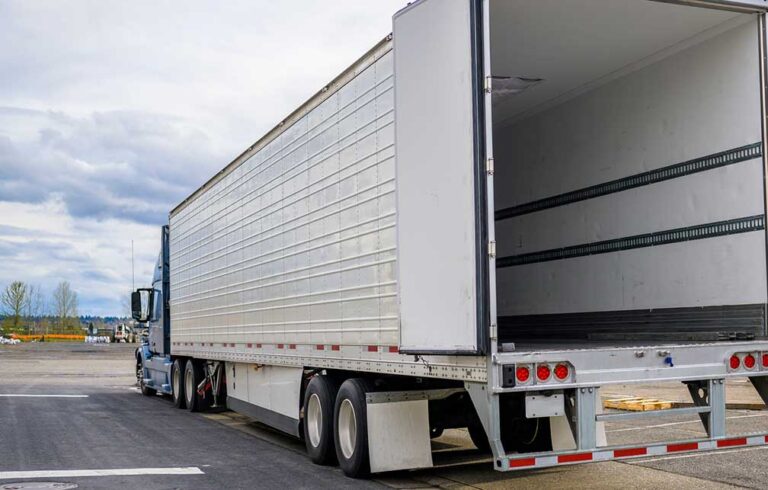As an owner-operator, once you’ve purchased your truck there are several ways to use it to produce income. The safest — and least expensive, in most cases — way is to lease the truck to a carrier.
However, many owner-operators choose to get their own authority (permission from the government to operate a trucking business). Doing this usually means more work for the owner, but having your own authority could result in more independence and, perhaps, greater income.
Operating under your own authority means you’ll be responsible for most of the tasks a carrier would provide — including finding your own freight to haul. Large carriers have salespeople to acquire and manage customer accounts and customer service staff to manage the operational relationship.
If you’re planning to book your own loads, here’s some advice.
Find a broker.
Owner-operators must either arrange for their own contracts with customers or work with the “spot” market, and that often means dealing with one or more brokers.
Shippers use brokers to schedule their outgoing loads for a variety of reasons. Sometimes a carrier they’ve contracted with can’t handle all the available freight and they need help. Sometimes the shipper doesn’t ship enough to attract a carrier. Sometimes rate fluctuations make it beneficial to use a broker that might find a cheaper rate. Often, the shipper isn’t large enough to hire a shipping staff who knows trucking details like rates, transit times and paperwork.
A broker will find a carrier to haul the load, manage pickup and delivery, handle the details of insurance and legality, and investigate the carrier’s record, among other tasks.
While some owner-operators prefer to run all or most of their loads for a trusted broker, while others depend on load boards to find and secure loads. Using load boards instead of a single broker can provide a greater variety of loads, rates and other variables — but it generally means dealing with more than one broker.
Load boards often provide tools independent operators can use to evaluate broker performance and even to warn other truckers of problems they’ve encountered. Many load boards offer tools that let users determine average rates to or from an area; this information may help you negotiate a better rate or help you decide whether to accept a load to a particular area.
The largest load board is DAT Freight and Analytics, and another large board is Truckstop.com; both offer tools to help owner-operators decipher the market, in addition to training tools. Other load boards are offered by factors and other businesses. Apps like TruckerPath also offer this service; in fact, an internet search for “load board apps” will turn up a number of options.
In addition, some trucking companies often offer logistics services, which are basically load brokerages. Doing this allows companies to find other carriers to haul loads that don’t fit into their usual lanes in addition to acquiring loads for their own trucks. Some of these carriers post on the load boards you may already use.
Build relationships.
Any broker will have conditions for doing business with you — for instance, the amount of insurance you carry or how long you’ve been in business. Some brokers deal only with certain types of equipment or have age requirements, while others look more closely at CSA scores and driving records.
When you deal with a broker for the first time, you’ll need to send them a copy of your authority, certificate of insurance and other documents. The next time you haul for that broker, you shouldn’t have to send the paperwork again.
As an owner-op, taking the time and effort to get to know a broker — and let them get to know you — can pay off in the long run.
A broker that’s familiar with the lanes you run and knows you’ve provided quality service in the past will be happy to deal with you. In fact, they may even get to the point of calling you before posting the load. In addition, if you’ve established a relationship with a particular broker, you’ll have an idea of how far you can push in rate negotiations, and you might receive higher consideration for the next load.
Keep this in mind: The broker wants to please their customer, so reaching out to someone who’s known for providing reliable, courteous service is a smart move.
Some brokers ask operators to download a specific app on their phones that allows the driver’s location to be tracked. This allows the broker and the customer to keep up with the progress of the load and see the quality of the service you’re providing. Some drivers invest in a second phone just for business to accommodate requests like this. You can always uninstall the app later, unless it’s one you use frequently.
It’s a fact of life that some people aren’t easy to deal with. Brokers and drivers alike can tell stories about the ones who have been cranky or unreasonable.
In this situation, your best bet is to be as cooperative as you can while standing up for your own interests. Being transparent about the rate you need and asking the broker to do the same will go a long way toward building a relationship.
When things go wrong, take a minute before calling the broker to complain. Brokers are commonly accused of being dishonest — but there are times they’re surprised to find things customers didn’t tell them. On top of that, customers don’t always know the conditions you’ll face at the delivery point.
It’s OK to express your frustration, but accusing the broker of lying or failing to inform you of something won’t motivate them to pay you faster or to get you another load.
Remember, it’s a business — but businesses often revolve around personal relationships.
Also keep in mind that the ratio of available loads and available trucks can either harm or help your rate negotiation. If the broker has 50 trucks vying for the one load leaving the city that day, you’ll have to accept a lower rate if you want the load. Most load boards can help you determine how many trucks are bidding for a load, along with average rates.
In a nutshell, if you plan to rely on brokers for your revenue stream, it’s vital to build relationships, know the market and provide excellent service.
Cliff Abbott is an experienced commercial vehicle driver and owner-operator who still holds a CDL in his home state of Alabama. In nearly 40 years in trucking, he’s been an instructor and trainer and has managed safety and recruiting operations for several carriers. Having never lost his love of the road, Cliff has written a book and hundreds of songs and has been writing for The Trucker for more than a decade.








